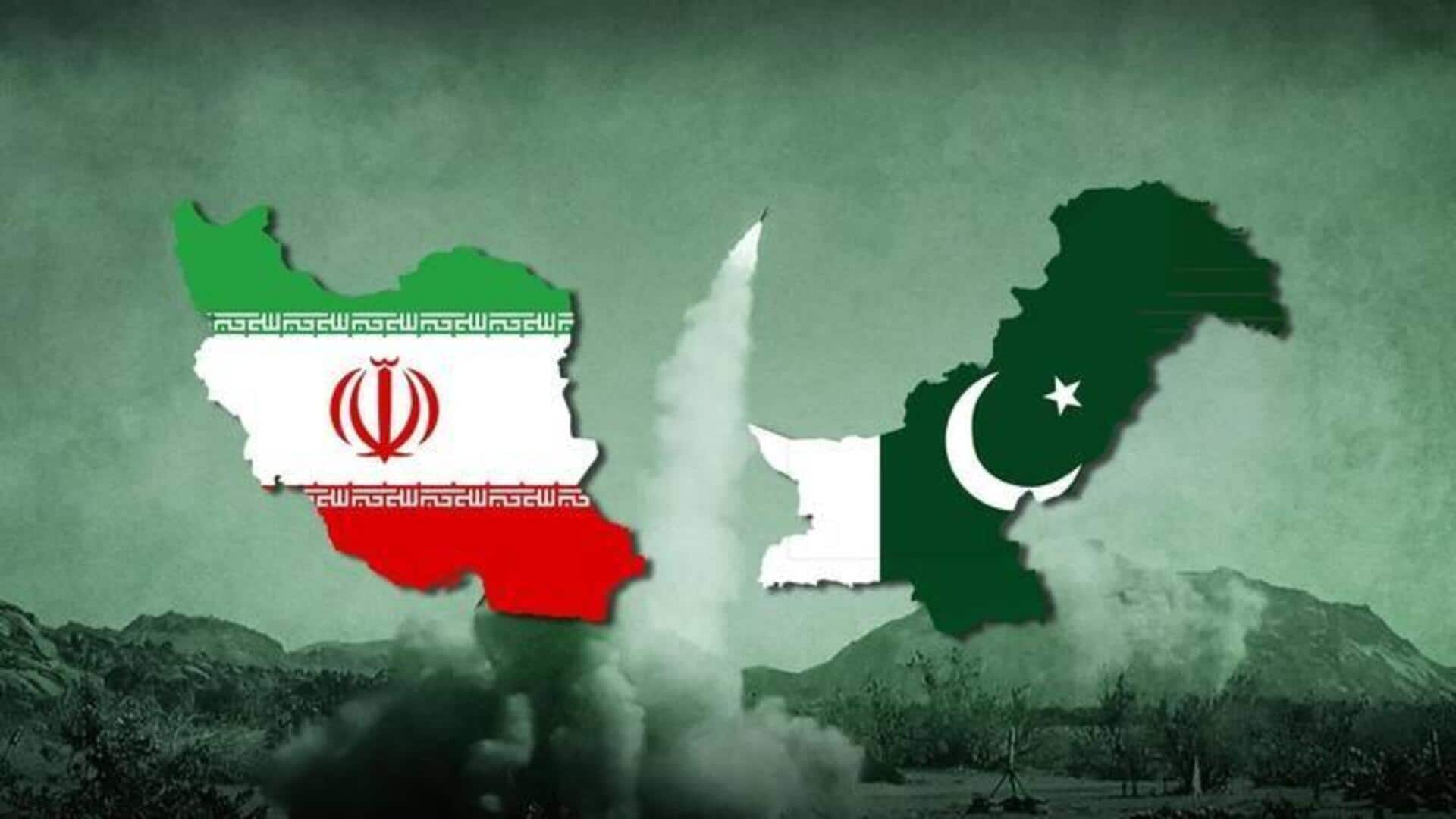
Pakistan, Iran agree to 'de-escalate' tensions days after exchanging airstrikes
What's the story
Pakistan and Iran have agreed to de-escalate tensions following tit-for-tat missile strikes between the two countries this week.
The conflict erupted after Iran conducted deadly airstrikes on the terrorist group Jaish al-Adl's headquarters in Pakistan's Balochistan on Tuesday night.
This triggered fresh regional tensions, which had already escalated amid the Israel-Hamas war.
However, a phone call between Pakistan's Foreign Minister Jalil Abbas Jilani and his Iranian counterpart Hossein Amir-Abdollahian has set the stage for both countries to defuse the situation.
Context
Why does this story matter?
Iran attacked the alleged terrorist group in Pakistan on Tuesday night, leading the latter to launch retaliatory strikes on Baloch separatist groups in Iran on Thursday.
Iran's strike came after its elite Revolutionary Guards' similar missile attacks in Iraq and Syria a day earlier.
These tit-for-tat actions caused both nations to recall their ambassadors.
Regional tensions soared amid the ongoing war between Israel and the Palestinian terrorist group Hamas, drawing in Iran-backed armed groups in Iraq, Syria, Yemen, and Lebanon.
Statement
Pakistan, Iran issue joint statement of agreement
Amid the conflict between Iran and Pakistan, the international community, including the United Nations (UN) and the United States (US), called for restraint.
Following this, the two countries decided to ease tension.
In a joint statement, Jilani and Abdollahian highlighted the agreement between Iran and Pakistan to "de-escalate the situation" and strengthen coordination on counter-terrorism and other mutual concerns.
"The foreign minister stressed that respect for territorial integrity and sovereignty must underpin this cooperation," Pakistan said.
What Next?
Pakistan's interim PM held emergency security meeting
Meanwhile, Pakistan's caretaker Prime Minister Anwaar-ul-Haq Kakar also held an emergency security meeting, cutting short his trip to Davos, Switzerland, for the World Economic Forum (WEF).
At the meeting, he reiterated the "unflinching resolve that sovereignty and territorial integrity of Pakistan are absolutely inviolable."
With the country's general elections around the corner, Kakar pledged to respond to any breach with "full might."
The meeting also concluded that both countries could "overcome minor irritants through dialogue and diplomacy."
Insights
Reactions from international community
Meanwhile, India on Wednesday said that Iran's missile attack on Pakistan concerns only those two nations.
However, it emphasized its "zero tolerance" policy toward terrorism and also acknowledged "actions that countries take in their self-defense."
The US State Department criticized Iran's actions, calling it "a little rich" for Iran to claim it needs to take these actions to fight terrorism while being the "leading funder of terrorism in the region."
China offered to mediate, urging both sides to avoid escalation.
India
What India said about Iran's attack on Pakistan
"Insofar as India is concerned, we have an uncompromising zero tolerance towards terrorism. We (India) understand actions that countries take in their self-defense," External Affairs Ministry (EAM) spokesperson Randhir Jaiswal said on Wednesday.
Reaction
Responsibility for consequences will lie with Iran: Pakistan
Earlier, Pakistan issued a "strong condemnation" over the "unprovoked violation of its airspace" by Iran.
According to The Associated Press, Tuesday's strikes took place in the town of Panjgur near the Iranian border, damaging a mosque 50km inside Pakistani territory.
"The responsibility for the consequences will lie squarely with Iran," Pakistan said in an official release after the violation of its airspace.